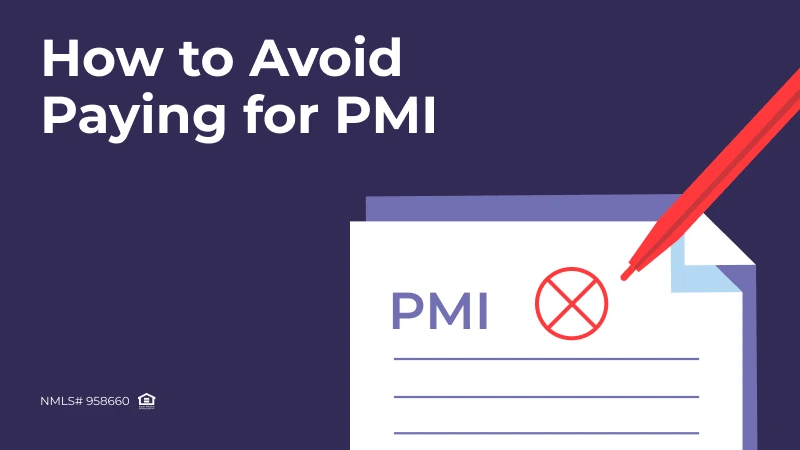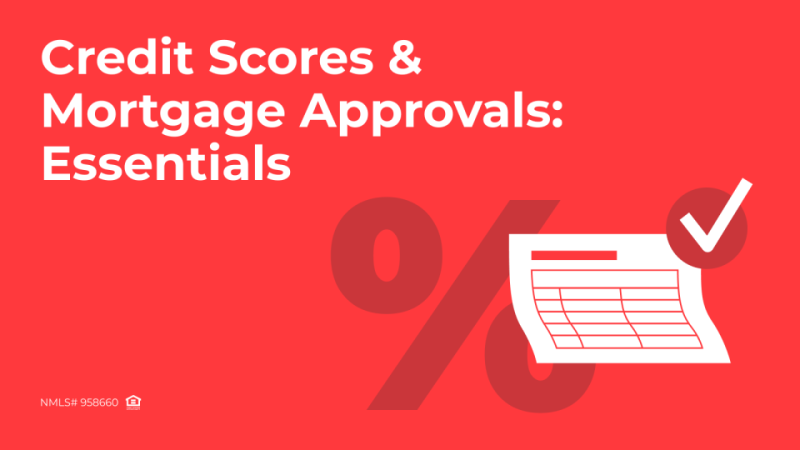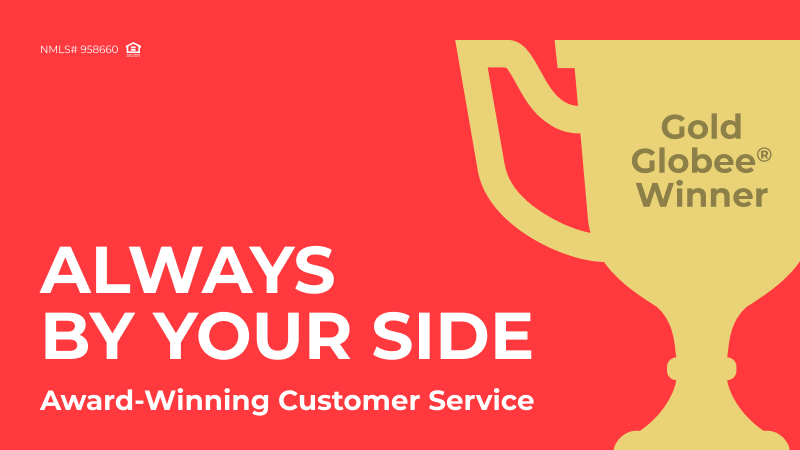
Private Mortgage Insurance (PMI) is an added cost that many homebuyers face when their down payment is less than 20%. However, understanding how to avoid private mortgage insurance can help borrowers reduce their monthly payments and save money in the long run. In this article, we’ll explore what PMI is, different types of PMI, and effective strategies to avoid or minimize its costs, ensuring you can keep more money in your pocket while securing your dream home.
This article was originally published on Mar 17, 2023.
What is Private Mortgage Insurance?
PMI (private mortgage insurance) is an insurance policy issued by private companies to provide the lender with a cushion against loss in the event of a borrower’s default. PMI is mandatory for most mortgagors whose down payment is less than 20% of the purchase price of a house or the LTV (loan-to-value) ratio is over 80%. Such borrowers are considered high-risk, and they have to pay their private insurance monthly until they cover at least 20% of the initial cost either by paying the down principal or increasing house value.
Get the ADvantage
with our loyalty program
Earn and redeem points for valuable benefits for you and your clients
Unlock RewardsInsurance charges generally range from 0.5% to 1.5% of a loan balance per year, depending on the down payment and mortgage sizes, the loan term, and the credit score. In other words, a borrower has to pay approximately $30-$70 monthly for every $100,000 borrowed. For instance, private insurance will add $1,188-$3,563 annually or $100-$300 monthly to mortgage payments for a $250,000 loan with a 5% down payment.
Types of Private Mortgage Insurance
There are several types of private insurance with their peculiarities.
1. Insurance paid by a mortgagor
In this case, insurance premiums are included in the borrower’s monthly payments, indicated as “special” in the bill.
2. Insurance paid by a lender
A lender may pay premiums on behalf of the mortgagor. However, in such a case, a borrower gets a higher interest rate or has to pay additional activation fees. What’s more, insurance of this type can’t be waived the same way as the one paid by a mortgagor; the only way to cancel it is to re-mortgage.
3. Single upfront payment insurance
A mortgagor can pay the premium in full at closing or financing. While it requires more upfront costs, it can save funds for long-term homeowners.
Ways to Remove PMI
If a borrower already has a mortgage with private insurance, it doesn’t mean that they are forced to pay it for the entire term. As a rule, insurance is no longer required when a mortgagor’s loan balance reaches 80% of the initial property value. Additionally, the Consumer Financial Protection Bureau has the following requirements to conform to:
- A good payment history record
- Current active credit status
- Equity must not be subject to a subordinate loan
- Proof of value
Some lenders, however, may have different or additional requirements for insurance termination (a certain number of loan payments, re-obtaining an appraisal, etc.) For instance, some Fannie Mae and Freddie Mac loans require achieving 25% equity to remove PMI.
To terminate the insurance, a mortgagor can send the lender a written request once they have reached the 80% loan-to-value threshold. When it comes to the insurance paid by the lender, things get more complicated. The only way to get rid of insurance of this type is refinancing once a mortgagor has acquired 20% equity in their house.
It should be kept in mind that the PMI termination process takes time, during which a borrower has to continue making payments. In addition, a mortgagor may also have to pay for an appraisal if a lender requires it.
How to Avoid Private Insurance?
Given the high cost of private insurance, it’s no wonder that many mortgagors look for ways to avoid it from the start. The simplest and most evident method is putting down at least 20% of the purchase price, but not everybody can afford it. The good news is that other effective ways do exist.
Choosing PMI-free loans
Some mortgages don’t require private insurance. They include government-backed loan options supported by the United States Department of Agriculture (USDA), Veteran Affairs (VA loans), and the Federal Housing Administration (FHA). If a mortgagor is eligible for such loan programs, they may not have to worry about private insurance.
Opting for state and local programs
The idea of affordable housing is increasingly supported in many cities and states. Hence, there are special programs aimed at making home ownership affordable for people of certain professions. These include emergency responders, firefighters, doctors, teachers, etc. These programs are generally not accompanied by a PMI requirement.
Considering the piggyback loan method
If a borrower isn’t eligible for government-backed or special local programs, they can consider a piggyback loan method. Since the point is to cover a 20% down payment, a mortgagor can put down 10% using their own funds and take out another loan for the remaining 10%. Although the strategy is quite viable, not all lenders allow it. And if they do, a borrower should consider two things – the second credit, in most cases, have a higher interest rate than the first one and should be repaid as soon as possible.
Choosing a higher interest rate
Some mortgages with higher interest rates can be PMI-free. A borrower will need to go through a qualification process. If successful, they will be able to take out a PMI-free loan putting down less than 20%. However, a borrower should bear in mind that their monthly payments will be higher because of a higher interest rate.
Considering a less expensive property
If a lender has pre-approved a certain amount for a borrower, it doesn’t mean that they have to spend it all to purchase a house. A homebuyer might consider buying a less expensive property that they can comfortably afford without falling under PMI.
How to Make PMI Rate Lower?
If a mortgagor has no opportunity to avoid private insurance, they can look into ways to reduce its costs.
Enhanced Broker Portal
that makes your job easier
- All operations at your fingertips
- Easy-to-use intuitive interface
- Integrated AI technology
- The PMI rate mainly depends on down payment size and the credit score. That means that a borrower can improve their credit score and make their down payment as close to 20% as possible.
- Also, a borrower can get lower insurance premiums if they opt for owner-occupied dwellings rather than rental or investment properties.
- An adjustable-rate mortgage has higher private insurance payments than a fixed-rate one. Therefore, by choosing the latter loan type, a mortgagor can significantly reduce their insurance payments.
- A final option is selecting Freddie Mac Home Possible or Fannie Mae HomeReady mortgages. It allows homebuyers to take out a loan with only a 3% down payment and lower PMI costs.
Conclusion
While PMI is often a necessary cost for homebuyers with lower down payments, it doesn’t have to be permanent. Knowing how to avoid private mortgage insurance—whether through choosing the right loan program, increasing your down payment, or improving your credit score—can lead to significant savings over the life of your loan. By exploring your options early on, you can make informed decisions and avoid unnecessary costs tied to PMI, keeping your mortgage more affordable and aligned with your financial goals.


